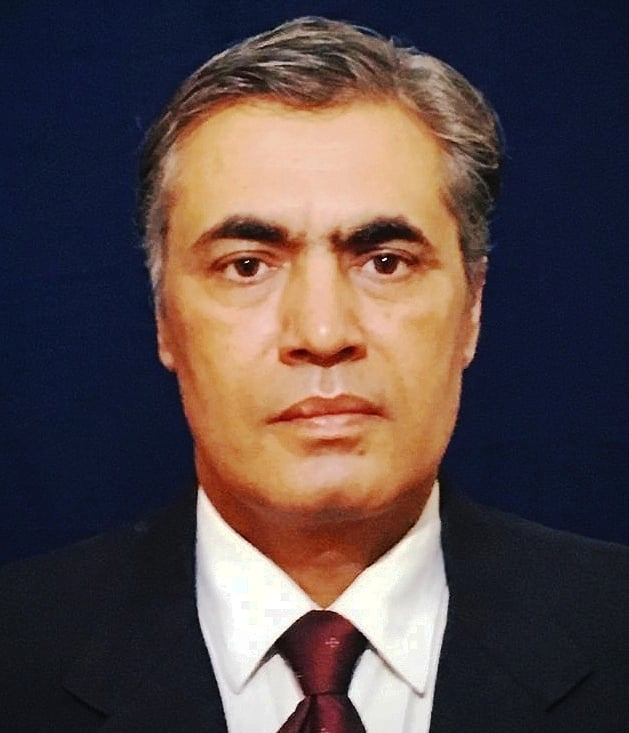
Writing on the Wall
Trade and industry on the brink of closure due to SBP’s ineffectiveness
Karachi: The State Bank of Pakistan (SBP) remained unable to achieve the desired results, despite monetary tightening measures, while bringing the trade and industry on the brink of closure.
The central bank remained silent on the issue of capping of the dollars, which badly affected the inflows of the much-needed greenback.
Similarly, another negative impact of the tight monetary policy stance was the record increase in inflation, as it reached the 48-year high levels, amid the SBP’s decision to raise the benchmark interest rate to 17 per cent.
The regulator is responsible for the monitoring of the exchange rate in the country, but during the last five months, Pakistan witnessed outflows of huge amount of the foreign exchange because of the capping of the dollar, which resulted in the widening of the gap between official and unofficial currency rates and giving a free hand to the black market.
Many experts and former finance ministers believe that the country has lost an estimated $4 to $6 billion. Recently, the central bank has strongly denied that capping the dollar caused a loss of $3 billion in remittances and exports.
The exports of goods have been facing headwinds due to moderating demand in the international markets, as most of our major trading partners are going through a period of monetary tightening.
Meanwhile, inflation has been significantly higher in the developed world, eating into the purchasing power of the consumers. Similarly, the workers’ remittances were gradually tapering off from the all-time high level of $3.1 billion achieved in April 2022 due to Eid-related inflows.
“Thus, the decline in Pakistan’s exports and remittances is the result of a number of exogenous factors and domestic reasons and it would not be appropriate to ascribe it to the exchange rate only,” the SBP said.
However, economic pundits, even after the SBP clarification, said that the central bank, being an autonomous body, has to take timely action regarding the exchange rate.
Hafeez A Pasha, former finance minister, said that the central bank has disappointed the nation.
“It has to take prompt action as an autonomous body,” he added.
The capping of dollars flourished the black market, while the country failed to materialise huge inflows from remittances and exports.
Miftah Ismail, former finance minister, said that around $1.5 billion were not materialised under remittances, as the people living abroad opted hawala and hundi to transfer their money to Pakistan. Further, a similar amount was lost in export receipts.
“If Pakistan had taken such tough decisions five months ago on the directives of the International Monetary Fund (IMF), then the situation would have been different now,” he added.
Meanwhile, the official foreign exchange reserves of the State Bank reached a level to provide only 20 days import cover, as they fell to $3.086 billion by the week ended January 27, 2023.
Similarly, the import bill for January 2023 has been recorded at $4.856 billion, the data released by the Pakistan Bureau of Statistics (PBS) showed. The foreign exchange reserves of the central bank witnessed a record high of $20.146 billion by the week ended August 27, 2021. Since then, these have dropped by $17.06 billion.
Terming the current foreign exchange reserves level alarming, the analysts have advised the government to prioritise the IMF programme.
The businessmen have expressed concerns over a persistent refusal of the banks to open the letters of credit (LCs), causing increased cost of the consignments, and stacking of a large number of containers at the ports.
Sheikh Haroon Baksh, leader of Pakistan Automobile Spare Parts Importers and Dealers Association (PASPIDA), said that the delay in the LCs opening is giving rise to smuggling in the country. The goods, which have been denied clearance, are easily available in the market through smuggling.
“Although the consignments remain stuck at the ports, yet the spare parts of all types of vehicles are easily available across Pakistan, as these are being smuggled into the country through illegal channels,” he added.
For him, the situation has triggered a crisis for the automobile sector, as it has been discouraging imports through legal channels and paved the way for massive smuggling of spare parts, including blatant misuse of the Afghan Transit Trade, causing severe losses not only to the legitimate traders but also to the national exchequer.
Altaf Tai, chairman of the Association of Builders and Developers (ABAD), said that the recent iron and steel crisis is dragging the construction industry towards a total collapse and the steel prices have gone to an all-time high of Rs280,000/tonne because the banks are unwilling to open the letters of credit. Moreover, no steel is available at this rate, too, he added.
Likewise, the oil marketing companies have also raised their voice against the severe impact of the rupee depreciation on the oil industry.
Syed Nazir Abbas Zaidi, secretary general of the Oil Companies Advisory Committee (OCAC), said that the persistent rupee depreciation has caused a loss of billions of rupees to the industry, whose LCs were expected to be settled on the new rates, whereas the related product has already been sold.
“These losses not only have an impact on the profitability of the sector, which was already under severe pressure but also on the viability of the sector, since these losses, in some cases, might exceed the entire year’s profit for the sector.”
Owing to an increase in the oil prices and the rupee depreciation over the last 18 months, the financing limits from the banking sector have become insufficient. As a result of the recent depreciation alone, the LC limits have overnight shrunk 15 to 20 per cent.
“To ensure import of adequate products into the country, it is important to increase the trade finance and LC limits of the industry in line with the current oil prices, exchange rate and the volume being handled by each company,” he said.
Zaidi requested the State Bank of Pakistan to immediately enhance the limits of the member companies.
Comments
Miftah Ismail
Former finance minister
If Pakistan had taken such tough decisions five months ago, then the situation would have been different now

Hafeez A Pasha
Former finance minister
The State Bank of Pakistan has disappointed the nation. It has to take prompt action as an autonomous body

Catch all the Economic Pulse News, Breaking News Event and Latest News Updates on The BOL News
Download The BOL News App to get the Daily News Update & Live News.








 Read the complete story text.
Read the complete story text. Listen to audio of the story.
Listen to audio of the story.